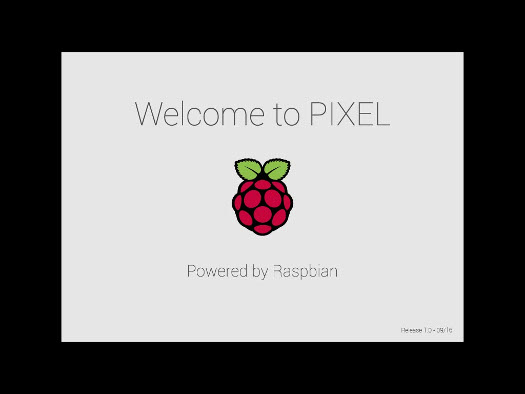In this story, “Roblimo” takes us back to 2002, to an open source conference in a country where the common belief was that “nobody knew…
FOSS Force
Raspbian, the Raspberry Pi’s most well known distro, has an exciting new look and feel with Pixel.
The Raspberry Pi Report
A couple of weeks ago, the Raspberry Pi Foundation announced they had tuned up the look and feel of Raspbian. The new buzzword created to help bring about the message that the UI had changed was dubbed “Pixel,” which stands for “Pi Improved Xwindows Environment, Lightweight.” While I’m not completely sold on trying to make Pixel stand for something, what I am completely sold on is what it has brought to the table for the Raspberry Pi. With Pixel, Raspbian has the look and feel of an elegant OS and I’m beyond happy that they have put this together for the Raspberry Pi community. I’ve tried out Pixel for the past week and here’s my take to date.

The vision behind free and open source is software that serves all people on this planet of ours. The project to produce Shendy takes that…
Also included: Judge seems to make software patents illegal, Mageia mourns a contributor, Yakkety Yak frozen, KDE’s new release, and getting ready for All Things Open.
FOSS Week in Review
When I wrote last week’s wrap, Hurricane Matthew seemed to be on a direct path for my office. Now it appears that long before it hits my state it’s going to take a sharp turn to the right and head back out to sea. That’s the good news. Unfortunately, in getting to where it is today, this storm has so far killed nearly 1,000 people that we know of so far, and has made thousands, perhaps tens of thousands, homeless. That’s bad news indeed.
This week’s free tech news was a little more fun…
 Digital Homicide commits suicide: In a story that’s been brewing for a while now, it seems that game company Digital Homicide was given enough rope to…well, you know. It seems that the publisher had gotten in the habit of suing any Steam user who dared to post a bad review about one of its games, and actually subpoenaed Valve for the identities of 100 anonymous users who had made statements about the company. This, in turn and understandably, pissed a lot of users off, which led to Valve removing all games from Steam.
Digital Homicide commits suicide: In a story that’s been brewing for a while now, it seems that game company Digital Homicide was given enough rope to…well, you know. It seems that the publisher had gotten in the habit of suing any Steam user who dared to post a bad review about one of its games, and actually subpoenaed Valve for the identities of 100 anonymous users who had made statements about the company. This, in turn and understandably, pissed a lot of users off, which led to Valve removing all games from Steam.
Free Code Camp is an organization that teaches people to code. As part of this free training, student coders produce free code needed by nonprofit…
It appears as if Yahoo has become the pet rodent of the U.S. spooks. To paraphrase: A rat by any other name…
Op-ed
If I were Verizon, I’d be going over my agreement to purchase Yahoo with a fine tooth comb, looking for a way to weasel out of the deal. If I couldn’t find one, after going through with the purchase I’d quietly shut the site down and take a loss on the whole thing. Yahoo has no value anymore, not as a portal nor as a brand.
 The value it once had as the main intersection on the Internet is long gone, despite the fact that the site still commands enough traffic to make it the fifth most visited site on the web. The trouble is, that traffic isn’t arriving through the front door anymore, and visitors aren’t sticking around for more than a minute or two. People no longer visit the site to use all of the nifty features Yahoo once offered, because the majority of those features are long gone. Instead, these days Yahoo’s users come through the back door, either to use Yahoo Mail or to read a news article — usually a reprint from another site — after being directed to the URL by Google.
The value it once had as the main intersection on the Internet is long gone, despite the fact that the site still commands enough traffic to make it the fifth most visited site on the web. The trouble is, that traffic isn’t arriving through the front door anymore, and visitors aren’t sticking around for more than a minute or two. People no longer visit the site to use all of the nifty features Yahoo once offered, because the majority of those features are long gone. Instead, these days Yahoo’s users come through the back door, either to use Yahoo Mail or to read a news article — usually a reprint from another site — after being directed to the URL by Google.
Users of Fedora 24 might want to put any update plans on hold until this bug issue is resolved.
Breaking News
A warning was published Tuesday by Adam Williamson on the Fedora website against running dnf update in a graphical environment in Fedora 24. The warning was issued after numerous users began reporting “duplicated packages” and “kernel updates not working” error messages after running the update.
It’s easy for those of us in the US to become chauvinistic about our language. Our country is geographically huge, making it easy to think…









